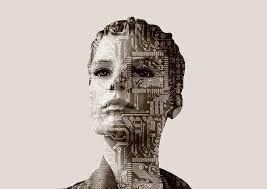Artificial intelligence: 2017’s answer to your own PA
By Jade Attwood, January 7 2019

These days, personal assistants are more popular than ever. With the world becoming increasingly hectic and demands on professionals ever more complex, more and more people are turning to PAs to help them manage their workload. Though the exact work a PA does vary from employer to employer, they are often the ones responsible for ensuring an executive or company boss can carry out their role effectively. This can involve anything from making appointments to ordering supplies and planning work trips.
In many organisations, PAs are responsible for crucial tasks like training staff and carrying out market research; all things that can have a big impact on the profitability of a company. With the importance of technology in a business, a company’s digital presence is also fast becoming an integral part of many PAs’ job descriptions.
Though PAs are integral to many organisations in the UK, not all companies can afford them. This has lead to a demand for more affordable alternatives, a demand that’s being filled by artificial intelligence.
AI personal assistants
Scientists and tech experts have long been looking for ways to make artificial intelligence play a more central role in business. By designing programmes that will carry out some of the work of a PA, they’ve been able to create a more affordable alternative available for all. Though AI will never be able to fetch your coffee, drop a delivery off on the way home, or make complex decisions, it can take on a number of tasks normally carried out by PAs. In some companies, this will free PAs up to focus on the more important parts of their job. While in other circumstances, if you run a small and growing business yourself, AI allows you to benefit from the help of a PA without saddling them with the financial burden of an extra salary.
What is AI?
Ever since computers were first created, tech experts have been looking for ways to grow their intelligence and intuition. In 1955, scientists Newell and Simon designed The Logic Theorist. Considered to be the first AI programme by many in the field. In the years that followed, several research groups worked to create computers that could learn, reason and problem solve on their own.
Though there’s still a long way to go before computers can learn and understand like humans, technology has come far enough for AI PAs to be useful. In most cases, artificial PAs simply carry out same functions available on your phone. Often voice controlled and able to complete multiple tasks at the same time, they free you up to focus on the task at hand. From making appointments and setting reminders, to searching for phone numbers, addresses and relevant online information, an AI PA can already carry out some of the role’s most fundamental duties. `
What’s already on the market?
The best known AI PA currently on the market is Apple’s Siri. Able to answer basic questions and control some smart home appliances, Siri is good at providing a range of simple services. Another popular AI service is Amazon Alexa. As well as answering basic search queries, the programme can stream music, read multiple news sources, order food and use a range apps.
Microsoft has also thrown its cap into the ring with Microsoft Cortana. It’s not a bad substitute for a PA. As the programme can handle reminders, manage your calendar appointments, track packages and give you a weather forecast. Cortana has also recently started talking to other bots via Skype. One of the more ambitious AI PAs around, Cortana could well become the perfect employee of the future.
The dangers of AI
Though artificial intelligence offers businesses and individuals a wide variety of benefits, there are some dangers inherently linked with the technology. The main danger of AI PAs is that they leave businesses more vulnerable to hacking. The more online appliances you have in your office, it’s more likely it is someone will get through your digital defences and attack your business.
If you’re relying on AI, it’s also important that you have an effective disaster recovery plan in place. Otherwise, valuable information could be lost in case of a major hack or natural disaster. Though a lot of people are also worried about Matrix-style outcomes for AI, at the moment the technology is nowhere near taking over the world.
In the future, it’s likely we’ll see AI become a more integrated part of our lives and working environments. AI PAs are likely to become commonplace across all industries, especially as their capabilities begin to expand. If you’re not yet working alongside an AI PA or dictating your memos to your computer, there’s a good chance that, before long, you will be.
Eager to discover more trends that are taking 2017 by storm? Check out the rest of our blog here.
Don’t forget to also check out our services – we come straight to you no matter what treatment you fancy!


